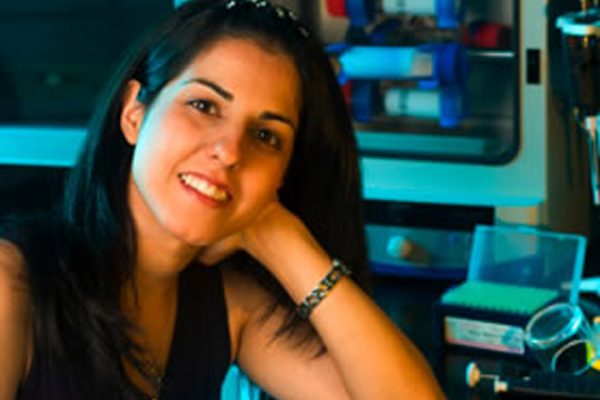
“Identifying foods or compounds of foods that could be incorporated into the diet to prevent loss of bone and cartilage after menopause would benefit many women.”
Osteoporosis—ten million Americans suffer from this silent but debilitating disease, and another 34 million are at risk. Osteoporotic bone loss renders postmenopausal women susceptible to fractures caused by activities as simple as vacuuming.
“The causes of osteoporosis and osteoarthritis involve genetic, environmental, societal, and lifestyle factors,” says Shirin Hooshmand, a doctoral student in Human Nutrition. “Aside from drug therapies, women are interested in using alternative or adjunctive therapies. Identifying foods or compounds of foods that could be incorporated into the diet to prevent loss of bone and cartilage after menopause would benefit many women. My long-term research objective is to understand the etiology of age-related disorders as a basis for the development of effective nutritional strategies for the prevention and management of these skeletal disorders.”
Shirin’s doctoral research has focused on the role of naturally occurring anti-inflammatory compounds in plants. “Among fruits with a bioactive component, our animal study findings have shown that dried plum is the most potent fruit in terms of reversal of bone loss. In a one-year clinical study, we are evaluating dried plum’s effects in 144 postmenopausal women. The results, if positive, can provide a feasible and safe alternative for treatment of osteoporosis.” Some of her research findings have been published in peer-reviewed journals such as Bone, Calcified Tissue International, European Journal of Clinical Nutrition, Journal of Nutritional Biochemistry, and Menopause. She has also presented her findings at numerous national conferences.
Before coming to the U.S., Shirin learned about the research being done by Dr. Bahram Arjmandi, chair of the Department of Nutrition, Food, and Exercise Sciences, and she recognized the commonality of their interests. He is now her major advisor. “Dr. Arjmandi’s contribution to research in the area of women’s health and his commitment to training the next generation of scientists make him an ideal professor and mentor.”
She and Dr. Arjmandi are currently writing a National Institutes of Health grant to study osteoarthritis, one of the top three health care problems of the developed world. “We are proposing to investigate whether estrogen is involved in the progression of osteoarthritis and the production of proinflammatory molecules in cartilage, and to examine whether soy isoflavone (genistein) and a synthetic isoflavone (ipriflavone) can inhibit cartilage deterioration and halt the progression of osteoarthritis.” Their preliminary observations indicate that it can, which has practical use since there are no approved therapies for preventing osteoarthritis.
They are also preparing for the upcoming (Feb 21-22) symposium—Managing Menopause: A Common Denominator in Chronic Disease Prevention, which is jointly sponsored by FSU’s Department of Nutrition, Food and Exercise Sciences and the U.S. Department of Agriculture.
Upon completion of her degree, Shirin envisions teaching and conducting research at an institution of higher education. “My hope is that one day I can effectively contribute to the field of Nutritional Sciences and to facilitate the mentoring of students and the career growth of professionals and educators.”




